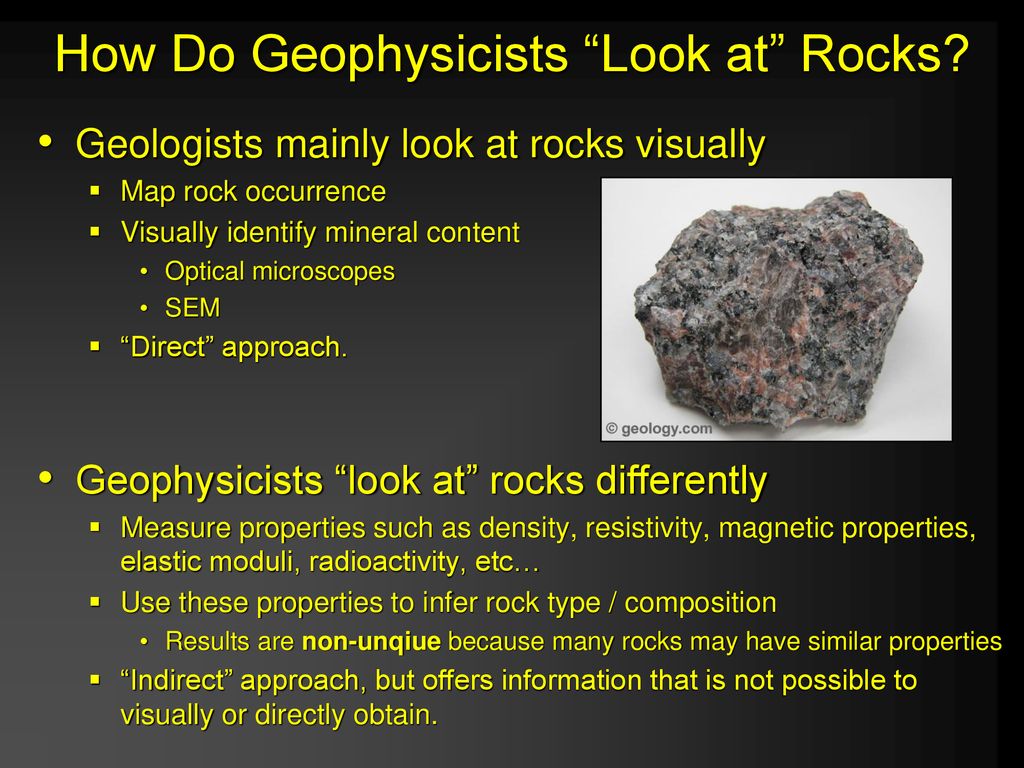All Categories
Featured
Table of Contents
What Does A Geophysicist Do: Duties And Responsibilities in Swanbourne Oz 2021

Other possible geophysicist majors that aren't geophysics or geoscience include: Atmospheric sciences and meteorology Chemical and physical oceanography Earth science Environmental science Hydrology and water resources science Materials science By making any geophysicist degree, and by taking the needed geology courses, you ought to get approved for an entry-level position as a geoscientist or geophysicist.
Ultimately, trainees should learn: a branch of geology that looks at the different aspects of minerals, including chemical composition, internal crystal structure, and physical homes. the study of rocks and the procedures and conditions that form and change them gradually. There are a few subdivisions in this branch of geology, consisting of igneous, metamorphic, and sedimentary rocks.

This field examines structural rock features such as cleavage, faults, joints, and little folds. They need to also discover the computer abilities necessary to: examine data produce digital designs and maps operate geoscientists' software Students must likewise benefit from all opportunities to acquire real-world experience. Ambitious geophysicists need to anticipate to hang out learning: in the classroom in the field in laboratories Obviously, skills taught in the classroom are extremely important for aiming geophysicists.
Geophysicist - Salary, How To Become, Job Description & ... in Gooseberry Hill Aus 2021
For example, geoscientists spend a great deal of their time outside when working in the field, so they need to have "outside abilities" like camping and running boats, aircraft, and other cars. Since they spend a lot time in remote locations, it's essential that geophysicists also have the physical stamina to bring required equipment on their walkings to areas of research study.
The task uses: a high typical and leading incomes a high rate of personal fulfillment among geophysicists low work stress favorable job outlook Additional details on incomes capacity and job outlook is detailed listed below. For students seeking to land an entry-level role as a geoscientist or geophysicist, it takes four years, or the time required to finish a bachelor's degree in geophysics or a related discipline.
Some research positions in geophysics need postgraduate degrees. If you prepare to teach at a college or university, you must earn a Ph. D. in geophysics or an associated field. The time it takes to earn a Ph. D. varies by organization and program, however it generally takes four to six years beyond the bachelor's degree.
Geophysical Survey Services in Floreat Oz 2023
In reality, the majority of employers need candidates to have a bachelor's degree in geophysics or a closely associated discipline for all entry-level positions. And, in many cases, companies need a master's degree. As a result, there's no method around the degree requirements for becoming a geophysicist. Most employers will expect or require a practicing geologist to be accredited for positions beyond those at the entry level.
Currently, 31 states require licensing for geologists, although licensing is not always required, especially for entry-level work. The states that do problem licenses use the Fundamentals of Geology Test (FGE), which is administered through the National Association of State Boards of Geology (ASBOG). Now that you know which degree for geophysicist jobs you need, you'll require to land a job, and it is very important to find out how much cash you can make in this career.
According to BLS, the average yearly wage for geoscientists is $93,580. According to BLS, specific markets use higher incomes for geoscientists, and in some cases, they use higher-than-average revenues.
Geophysical Surveys: Definition & Methods in Murdoch Aus 2020
Mining, quarrying, and oil and gas extraction offers over $32,000 more annually than the average annual wage for this profession. The federal government, too, uses over $10,000 more in earnings than the nationwide average for geoscientists. In addition to market type, geographic place can considerably impact revenues for this profession.

The top-paying states and their yearly mean wages, according to the BLS, consist of: Texas $166,720 Oklahoma $149,630 Pennsylvania $120,590 Hawaii $120,130 Colorado $107,260 These 5 top-paying states offer much greater earnings than the average for this profession. Wages for geoscientists in Texas are over $73,000 greater than the national average.
It should come as no surprise that the majority of these high-paying areas remain in Texas and Oklahoma, however some are discovered in California, Louisiana, and Colorado. The top 10 highest-paying metro locations for geoscientists are: Houston-The Woodlands-Sugar Land, Texas: $188,400 Tulsa, Oklahoma: $186,490 Midland, Texas: $167,040 Odessa, Texas: $147,080 Oklahoma City, Oklahoma: $145,350 Bakersfield, California: $130,080 Urban Honolulu, Hawaii: $124,470 New Orleans-Metairie, Louisiana: $121,030 Washington-Arlington-Alexandria, DC, VA, MD, WV: $120,180 Denver-Aurora-Lakewood, Colorado: $116,910 For some geoscientists and geophysicists, living in a metro city is not as enticing as living in a smaller neighborhood.
Latest Posts
Geophysical Surveys Definition & Meaning In Stock ... in Murdoch Oz 2023
About Environmental Geophysics in Middle Swan Aus 2022
Geophysicist Job Description in Australia 2021